CoachDrive
SOMETIMES YOU NEED A COACH TO PROVIDE HELP AND SUPPORT TO MAKE CHANGES
With all our Drives it requires people to take personal responsibility but sometimes we don’t have the answer. We can get into a vicious circle of events that slowly get to us and bring our confidence down. If you look at some goal orientated activities these can provide valuable insight into how people deal with change:
Passing a driving test – the percentage of people passing a test is very high, this could be for two reasons: one, there is a driving school and teacher and two the rewards of passing your test and driving a car are immense.
University – even though students have to pay many do not make the final exams. Therefore the Universities have created mini exams and assignments along the journey to make it easier.
Losing weight - we start a diet then stop and yo-yo month to month. We lose 3 to 5 kilos and then put it back on. Joining a slimming club or teaming up with colleagues improves your chances of success.
Keeping Fit - something triggers the emotion and we join a gym or we buy a bike. Generally, it is short-lived and we park the bike in the garage because we use the excuse, we are too busy. Alone the failure rate is a lot higher. Joining a club, or colleagues or even a sponsored walk pushes a person to get fit and keep going.
This Drive is all about getting help. If a person wants to help themself and they have done all the research and knowledge but could do with an expert to help them then finding a life coach could be the answer.
Here are some initial thoughts about coaching. GO!
Here are some facts and statistics about coaching. GO!
Changing our lives to improve is harder than we think – we are creatures of habit. See more GO!
See some definitions of coaching and how it differs from other disciplines. GO!
See some different types of coaching. GO!
See whether you should get a coach. GO!
See when you are more likely to want a coach. GO!
See the benefits of having a coach – there are more than you think! GO!
See more about life coaches. GO!
See the relationship between life coaches and other professionals. GO!
See other alternative therapies. GO!
If you’re a visitor to our site you can join and download information, assess your own health and create your own action plans, and even contribute to our site. GO!
See what you can do next.. GO!
We have some additional information and stuff on this subject. GO!
Some Initial Thoughts

Life coach
This Drive is all about getting help. If a person wants to help themself and they have done all the research and knowledge but could do with an expert to help them then finding a life coach could be the answer.
Facts About Coaching
The ICF Global Coaching Client Studies (commissioned in 2009, 2010 and 2012 and confirmed by PricewaterhouseCoopers), dealt with companies which introduced coaching for their employees.
showed improved self-confidence
reported improved relationships
demonstrated improved communications skills
said they had a better work / life balance
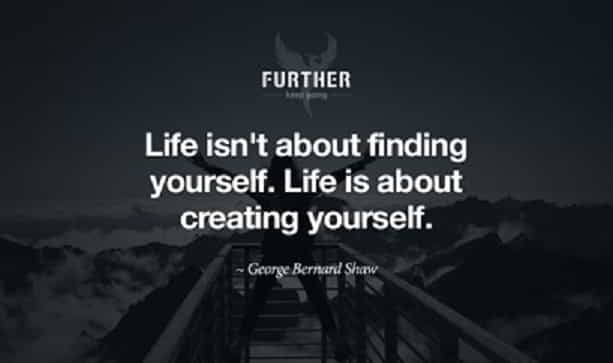
Transforming our lives is sometimes harder than we think
Humans are real creatures of habit. Ever moved things around in the kitchen and they find yourself when it’s done going back to the old place where things were kept. Driving is habit forming and many people sometimes can’t even remember getting to work on a morning, because its our subconscious that is doing most of the driving.
Breaking a habit Is often hard or even impossible for some, as any smoker or heavy drinker..
Learning a new skill- musical instrument or language again it’s a small percentage of people who have the will power to do it alone and maintain it. Most people do it with a friend or join a club.
New Year resolution – don’t let your new change be like a New Year resolution and fizzle away within hours or days.
To change an old habit, you have to create a new habit in your brain to run alongside the old one. This new habit will eventually take over the old habit. If you have a coach or are part of a group or team then it makes the change happen more easily and last longer.
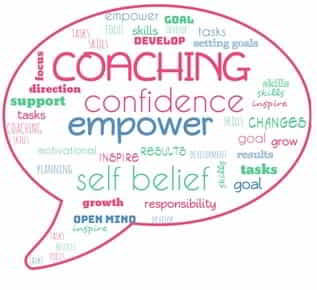
What is coaching?
Coaching is one form of support, alongside joining a club or support organisation, looking on a relevant website, therapy or mentoring.
It applies to people who want to get better or make a significant change in their lives, and also to companies who want their staff to improve.
It takes elements of consulting and also elements of therapy. It differs from therapy in that it looks forward rather than backwards. It’s true that coaching shouldn’t be used to fix mental illness, but you can’t say that only people in therapy can have mental issues.

Financial coaching - There are specialists in the financial services world now that help people plan their financial situation, assets, liabilities, mortgage and debt as well as investments. These people are qualified specialists and charge a fee or commission for their service.
Physical Coaching or Personal trainer – These people usually live at the gym and provide help, guidance and support about fitness, nutrition and wellbeing. Its important to check the credentials of these individuals as many have been just gym enthusiasts and taken an NVQ in fitness. They may be experts on fitness but don’t possess the qualification for nutrition and wellbeing.
Mental health coaching of life coach - These individuals provide a wide range of coaching services from deep dive analysis to simple life support hints and tips. See below about the different types of people.
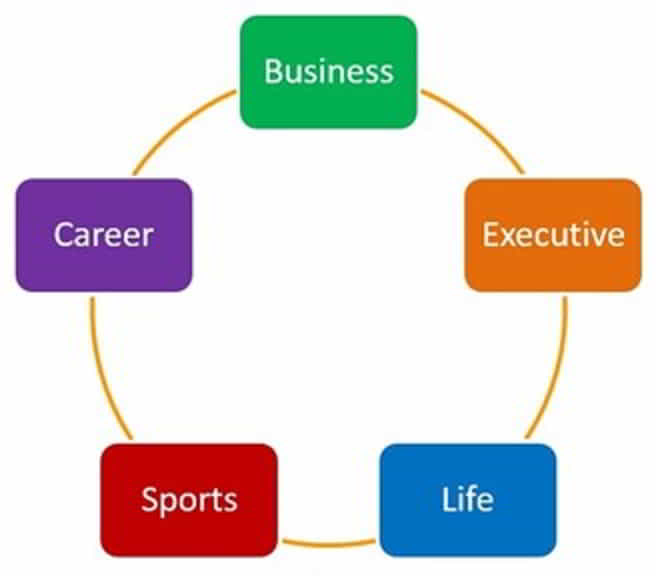
Are there different types of coaching?
A Definition of Coaching
Coaching aims to produce optimal performance and improvement. It focuses on specific skills and goals, although it may also have an impact on an individual’s personal attributes such as social interaction or confidence. The process typically lasts for a defined period of time or forms the basis of an on-going performance style.
What is mentoring?
Mentoring tends to describe a relationship in which a more experienced colleague shares their greater knowledge to support the development of someone less experienced. Mentoring relationships tend to be longer term than coaching arrangements.
Different types of coaching
You can get support or coaching for individual goals, such as stopping smoking, losing weight or reducing your drinking. Companies can also get coaching for their employees. This can be in particular areas (e.g. sales, conflict). There are also ‘Life Coaches’ where everything is addressed.
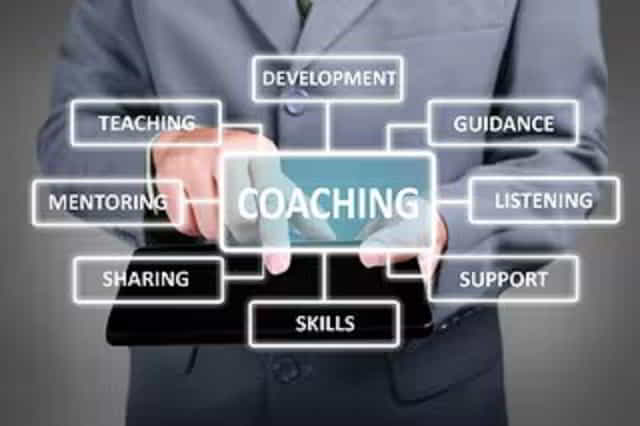
Why get support - do you need a coach?
We all learn and change in different ways. Knowing your own or preferred style is really important if you’re going to do something that lasts and is permanent. Some people like to study first and to understand all the options and facts. Some people get straight into it and start the change. Some people are influenced by external factors such as TV, radio, news articles, social media, work colleagues etc..
Whatever you prefer as a style of change the key question is can you maintain the change until a new habit is formed and maintained? All the Drives in YouDrive are about you, be it as part of financial, mental or physical health. Having support or a coach often helps. Coaching can require a significant cost outlay but if the outlay means you can turn around your physical or financial situation – e.g. give up smoking, then the benefit of the habit change pays for the extra support in coaching.
For those who cannot afford a personal coach then there are lots of support groups. Some charge a fee to join or attend such as weightwatchers but many of the government support lines for stress or advice on losing weight are free.
Whatever you prefer to do weigh up the costs versus your will to do it by yourself. There is no point in starting something if you know deep down your willpower isn’t strong enough to do it, so join a club, team, support group or get a coach.
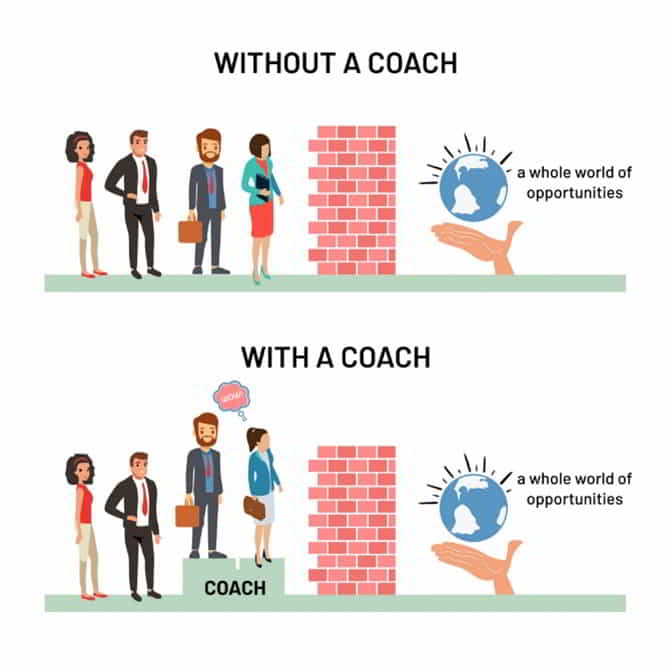
When do I need a coach
That depends on the individual really. Some people know themselves and perhaps know they lack will power to see things through, then a coach is ideal from the start.
Some people do the analysis and get more knowledge on their specific life issues and choose a coach for one specific area to support them.
People and coaches unfortunately choose a coach and then attempt to get advice on other areas or issues that are perhaps outside the expertise of the coach in which case they are merely giving their opinion rather than expertise.
Once such area is nutrition. What we put in our mouth’s effects all of our body and mind and how we function and think. It is always best to get advice from a nutritionist.
Having a general review is important to get things in order
Some people may need a generic coach to help a person prioritise their changes and issues. You may find that tackling a few issues may resolve other issues so it’s best to have a general life review with a life coach to start with to make an initial assessment. Doing this could save you a lot of money on an ongoing basis.
A life coach may be able to help you prioritise your issues and desires into who does what and when. The life coach will be able to advise on other specialist help you might need.
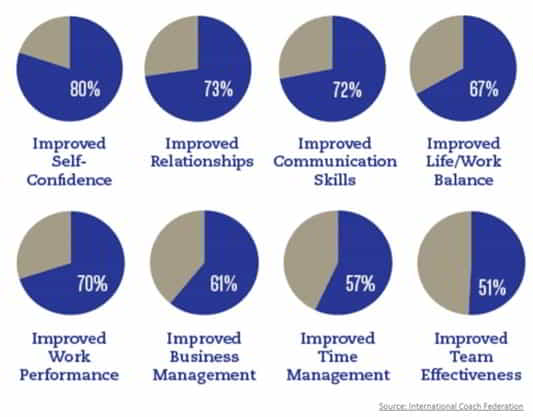
What are the benefits of having a coach?
There are many but listed below are a few. It does depend on which life coach you use and does depend on how long you use them for. Also how committed you are to making a change in your life.
A study by the International Coaching Federation (IFC) discovered that 80% of people who hired a life coach reported an improvement in self-confidence.
We are often consumed by our own opinions, life experiences, and way of thinking. A life coach can provide a new and often helpful perspective on things.
Being fully aware of your impact on others and recognizing your flaws, strengths, and unique personality attributes is an extremely challenging adventure. This is the art of self-awareness.
Self-awareness requires a strong capacity for introspection and reflection, something which a life coach can help you work towards. In fact, one study found that 67.6% of coaching clients experience a higher level of self-awareness.
Benefits of life coaching – Balance
The concept of life balance is different for everyone, but it often refers to a happy, peaceful, and harmonious relationship between your physical and cognitive being, as well as the major areas of life.
One of the benefits of a life coach is to identify what balance looks like for you and define action steps to achieve more balance in your life.
Relationships are the glue that combines individuals with society and provides shared fulfilment in life. From marriages to friendships and beyond, strong relationships are a critical contributor to happiness. According to the same ICF study mentioned previously, 73% of people who hired a life coach improved their relationships.
We all have dreams in life, but very few people crystalize these aspirations into tangible goals to systematically accomplish. A major benefit of life coaching is being able to define your life goals and create a concrete, doable plan to achieve them.
Benefits of life coaching – Happiness
True happiness is somewhat of a mystical experience and for most people, it’s hard to imagine a life that is forever happy. At the end of the day, happiness is intrinsic, it’s a feeling that is unique to the way you feel inside. By defining life goals, creating balance, and committing to a better version of yourself.
Are you clear on what your purpose in life is? Again, this is a very individual and internal fire that burns within. It’s your passion, dreams, skills, and weaknesses all bundled into one. It’s your direction in life. Clarity of purpose is vital if you want to pursue your dreams.
Finding that one thing you love more than anything else and doing it every day is a large contributor to happiness and satisfaction. Having clarity of purpose unlocks insights into what this may be.
You will have an ally that holds you to your word and ensures those goals get pursued and projects are completed.
Many of us spend too much time comparing ourselves to others and focussing on what we perceive to be our flaws.
Helps you identify a view of your strengths and weaknesses, helping you understand your areas of greatest opportunity.
…and put a plan in place to eliminate or reduce their impact on your goals
To be open-minded you need to appreciate that there are different ways of doing things and varying perspectives on life other than your own.
72% of people who hire a life coach improve their communication skills, according to the IFC study mentioned above. Better communication is one of the primary benefits of NLP life coaching.
Everyone has the same amount of time in the day, but some people use those 24 hours more efficiently than others.
As well as looking at the positive aspects of life, such as your purpose, goals, and potential, life coaches are armed with a series of techniques that can help you eliminate or reduce negative thoughts that hold you back.
By minimizing negative thoughts and embracing your strengths you can start to overcome fears that have been restricting your ability to achieve your dreams.
You can work with a life coach to brainstorm ideas and unearth creativity that is sitting dormant in the depths of your subconscious.
When bad habits are embedded in our day-to-day life, they diminish our ability to perform. Working with an impartial third-party will help you determine what these habits may be and learn to eliminate them.
Our values are those deeply held principles that influence our behaviour and motivate us to do things both large and small. Given the sheer influence of life values on every action, being aware of what they are can revolutionize the way we live and perform.
Setbacks and roadblocks can derail the best of us. One of the most sought after benefits of life coaching is to sustain the discipline and maximum effort during challenging times.
Despite thinking that we act rationally, most people make decisions based on emotion or entirely subconscious processes. With a deeper understanding of how the mind works, you can reframe the process of decision-making so that it becomes simpler and wiser.
If you’ve ever been to a job interview it’s likely that you have been asked how well you take feedback from others. While most people would like to think that they are open and willing to accept feedback or criticism, in the heat of the moment their emotions take over.
Rapport is a connection between individuals or a group that enables those people to interact and communicate effectively. For most of us, rapport is seen as an uncontrollable force that we either have with someone or we don’t.
Work with you to create and execute a plan for improving your physical well-being or losing weight. A healthy body often results in a healthy mind too.
Stress is a common occurrence for a large portion of the population. Financial burdens, career-related issues, or personal relationship problems can result in mental instability and stress-related health concerns.
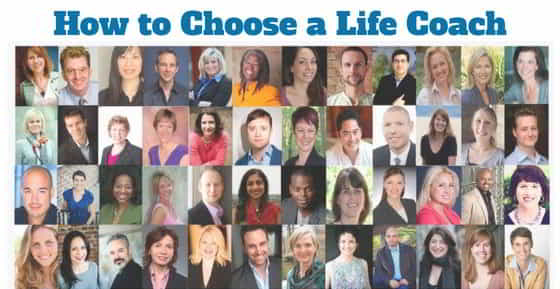
Are life coaches all the same?
The answer is no they are not.
The difficulty can be when looking at coaching is you may have a range of issue across a spectrum of skill areas. People have a habit of choosing a coach who serves one issue and often then provides best guess personal views on other issues. It’s like ask a builder who specialises in building a wall to do your plumbing. We have seen instances whereby personal trainers are offering nutritionist advice or fasting techniques without having studied the subject extensively.
The Dark Side of Life Coaching is that many people set themselves up as coaches based upon their own life experience. They may well have taken exams and courses to become a mental health or life coach specialist.
In our experience a large number of professional coaches and medical professionals chose this career path because they themselves have suffered some form of life issues.
What is difficult to work out is if they are fully over their own life issues whilst coaching others about their life issues. Their perspective on life is often distorted by their own mental thought process and view of life.
Coaching is an unregulated field. Practitioners do not need degrees specific to coaching. They also do not need certifications of any kind.
Coaching, in general, has grown into a billion-dollar industry. It attracts people from various backgrounds, educational levels, and experience.
Choosing the right coach for you is about personal choice, their experience and can it help you and do you get on well.
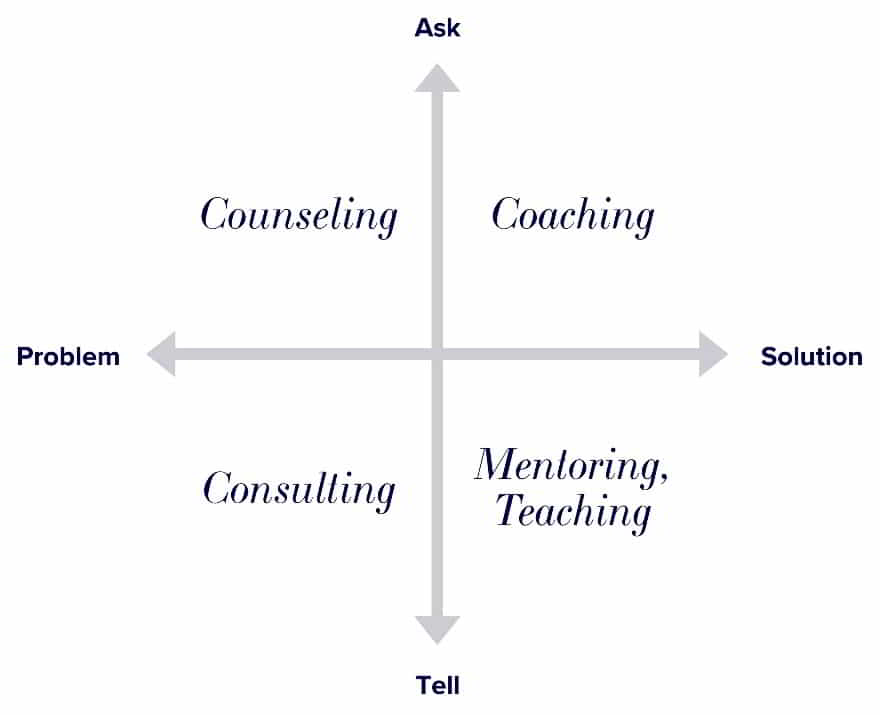
What is the difference between a life coach and other professionals and how do I know which one is right for me?
People often think getting a coach is all about improvements but that’s not true. Many people in serious debt can get a life line from a financial coach. Equally a person suffering from mild Anxiety will find a life coach useful as often anxiety is an effect of life issues.
Some people may have deeper issues and problems that require more than a coach and may need a very experienced medical professional such as Psychologists, psychotherapists, psychiatrists etc.
Definitions
A life coach can help you with all aspects of life including life’s issues such as anxiety, depression and stress.
nutritionists provide evidence-based information and guidance about the impacts of food and nutrition on the health and wellbeing of humans or animals. It is important that nutritionists have a good understanding of the scientific basis of nutrition.
Psychologists study and help treat people’s cognitive, emotional, and social processes and behaviours. One of their main goals is to evaluate and understand their clients’ thoughts, emotions, and behaviours. They go about this by: Identifying behavioural and emotional patterns.
Psychotherapists help individuals who are experiencing emotional and psychological difficulties to understand their problems and make appropriate changes to their lives.
Psychiatrists treat people suffering from mental health problems, including depression, anxiety, addiction and personality disorders. They can also offer help and guidance to help clients cope with bereavement, marital or family problems.
There is a wide difference on how these professionals provide the service
As you can see there is a lot of skills cross overs between the different professionals. In our experience they also seem to fit into a number of categories in terms of how they deal with clients.
Some professionals seem to have pursued a university career and tend to be quite theoretical. They often lack life experience and empathy towards real life cases.
Some professionals love labels and want to box your condition into a category or condition and then follow a text book remedy or solution.
Some professionals have retrained from their original career because they have experienced a life trauma or mental health issues and by training in the subject has helped them get a better grip of life. One may question if these people have actually overcome their issues.
Some professionals have no qualifications but have a lifetime of life success and can demonstrate they have dealt with similar issues in their lives and survived.

Other alternatives of coaching and therapy
On the road to changing your life you will come across all sorts of methods, treatments, techniques all advocating wellbeing changes such as reiki masters, hypnotherapy, acupuncture, hot stones, acupressure, homeopathy, energy therapies, aromatherapy, yoga etc.
If it works for you in helping you improve your wellbeing then go for it.
For visitors
Why don't you join us?
You can register to join us as a member, when you’ll be able to download our stuff and comment, or as a YouDriver when you’ll also be able to check your health and set up your own action plans to make some improvements. If you’ve already registered, sign in below. Or let us know what you think.
Google CEO says that everyone needs a coach
Google CEO says that everyone needs a coach
This video from Eric Schmidt, CEO of Google, expalins his views on coaching – not just in business, but generally.





Next Steps
It doesn’t matter what stage you’re at – it’s important to be the best you can be. At the end of the day it’s about taking personal responsibility – You Drive!
It’s really your choice. You can find out more information about the subject, or see other institutions that can help by going to Support. There you will find organisations, training, coaching, self-help courses and other items to support your personal change. We have also started developing a panel of experts to provide info, advice, help and support.
Get Support
There are times when you need some help to meet your aims – a helping hand. That might be an organisation that can provide you with some help, some specialised information, a particular book or tool to help, or just getting some background reading material.
We have a lot of items which appear on our Drives and other pages, which you can go to by clicking on the picture or link. Some contain affiliate links and we may receive a tiny commission for purchases made through these links.
If you know of anything which could help you or our other visitors then please click the button on the right, which will take you to a Contacts page where you contact us.
Experts
We are compiling a list of experts who can provide advice, help or specialised services. You will be able to access these experts from anywhere on our site you see our ‘Experts’ symbol. Click the green E to see what our Experts list will look like, with a couple of imaginary ‘experts’ added!
More Information
Scroll down to see more information on this Drive.
If you register you can also download reports, white papers, quizzes and other collaterals. We will never ask you for any financial information, and we’ll only send you the information you want. You can register for our site either above or in the footer below. You can provide your own questions and experiences in order to help other members. We only moderate for spam and inflammatory language – see our moderation policy.
If you’ve found this interesting, then please share it on social media. Choose your network!
More information
365 Ways to Be Your Own Life Coach
2nd edition: A Programme for Personal and Professional Growth – for Just a Few Minutes Every Day
Offers a life coach programme. “I believe the best coach for you is you, and I aim to give free rein to that person. This book will show you exactly what you need to do to turn yourself into your own life coach.
Why Has Nobody Told Me This Before?
The No 1 Sunday Times bestseller Hardcover
‘Sound wisdom, easy to gulp down. I’m sure this book is already helping lots of people. Great work, Dr Julie’ MATT HAIG, bestselling author of REASONS TO STAY ALIVE
You Coach You
The No.1 Sunday Times Business Bestseller – How to Overcome Challenges and Take Control of Your Career
What I love about this book is that it gives us the tools to guide ourselves and know that change and our true value is within us all’ Mary Portas
The Lazy Genius Way
Embrace What Matters, Ditch What Doesn’t, and Get Stuff Done
Being a Lazy Genius isn’t about doing more or doing less. It’s about doing what matters to you.
“I could not be more excited about this book.”-Jenna Fischer, actor and cohost of the Office Ladies podcast
How to Master Your Monkey Mind
Overcome anxiety, increase confidence and regain control of your life
– ‘An excellent book that will be of great benefit to those who feel lost and overwhelmed. Don Macpherson has a gift for guiding us gently back to the path.’ DAMON HILL OBE, 1996 Formula One Champion
BT offer a range of courses free
Become a health and life coach in 6 months with Health Coach Institute
The Coaching Academy offer a range of courses

















